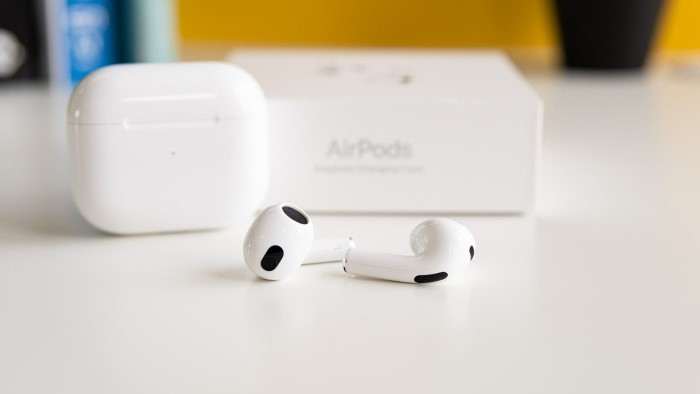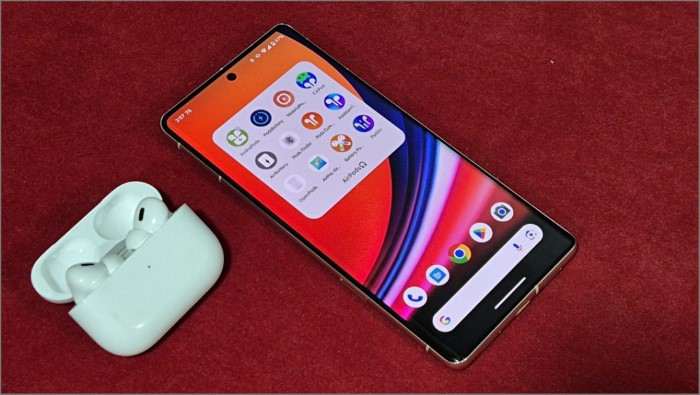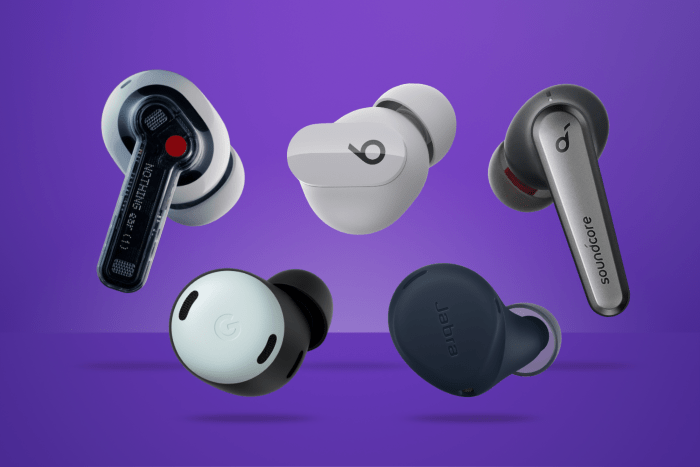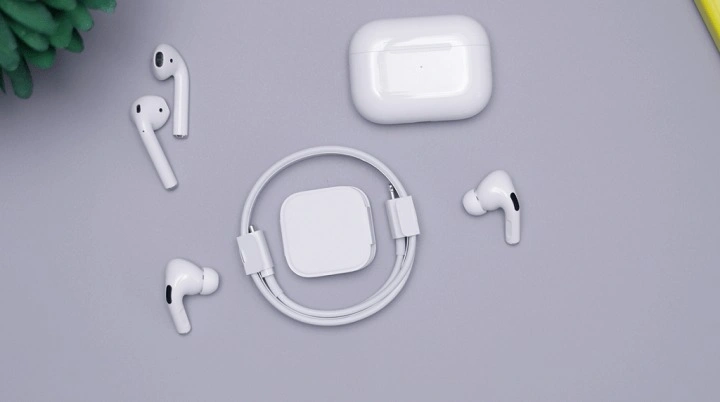What Are AirPods?

AirPods are Apple’s wireless earbuds, known for their sleek design, high-quality sound, and ease of use with Apple devices. There are several versions of AirPods, including:
- AirPods (1st and 2nd Generation): The original models that introduced true wireless earbuds to the masses.
- AirPods Pro: These feature active noise cancellation, a customizable fit, and superior sound quality.
- AirPods Max: Over-ear headphones with premium sound quality, noise cancellation, and advanced features.
- AirPods (3rd Generation): The latest version with improved sound, longer battery life, and sweat and water resistance.
Can AirPods Be Used with Android?
Yes, AirPods can be used with Android devices, but with some caveats. Since AirPods are designed primarily for Apple products, certain features are either limited or unavailable on Android. However, they still offer a great wireless audio experience with Android smartphones and tablets.
How to Pair AirPods with an Android Device
Pairing AirPods with an Android device is straightforward, though it differs slightly from the process used with Apple devices. Here’s how you can do it:
Enable Bluetooth on Your Android Device:
- Go to “Settings.”
- Select “Bluetooth.”
- Ensure Bluetooth is turned on.
Put Your AirPods in Pairing Mode:
- Place the AirPods in their charging case and open the lid.
- Press and hold the button on the back of the case until the LED light starts flashing white. This indicates that the AirPods are in pairing mode.
Connect the AirPods to Your Android Device:
- On your Android device, you should see “AirPods” listed under available Bluetooth devices.
- Tap on “AirPods” to pair them with your device.
Confirm the Connection:
- Once connected, you should see a confirmation on your Android device, and the AirPods are ready to use.
Compatibility and Features on Android
While AirPods work with Android devices, not all features available on Apple devices are supported. Here’s a breakdown of what works and what doesn’t:
What Works:
- Audio Playback: You can listen to music, podcasts, and videos.
- Call Handling: You can answer and make phone calls using the AirPods.
- Voice Assistant: You can use Google Assistant or other voice assistants, but not Siri.
- Basic Controls: You can play/pause, skip tracks, and adjust volume using touch controls or your device.
What Doesn’t Work:
- Automatic Ear Detection: AirPods automatically pause playback when you remove them from your ears on Apple devices, but this feature doesn’t work on Android.
- Battery Life Indicator: The battery status of your AirPods won’t be displayed on your Android device.
- Customizable Controls: You can’t customize the double-tap or press-and-hold functions as you can on Apple devices.
- Spatial Audio and Head Tracking: These advanced features available on AirPods Pro and AirPods Max don’t work with Android.
Third-Party Apps to Enhance the Experience

Several third-party apps are available on the Google Play Store that can help bridge the gap in functionality when using AirPods with Android. Here are a few popular options:
- AirBattery: This app shows the battery status of your AirPods on your Android device. It also supports in-ear detection, which pauses playback when you remove an AirPod.
- Assistant Trigger: This app allows you to use Google Assistant with your AirPods by double-tapping them. It also shows battery status.
- AndroPods: This app enhances the functionality of AirPods on Android, providing features like battery levels, pop-up animations, and more.
Sound Quality and Performance on Android
One of the biggest questions Android users have is whether the sound quality of AirPods is compromised when used with non-Apple devices. The good news is that the sound quality remains excellent on Android, though there are a few considerations:
- Bluetooth Codec: AirPods use the AAC codec, which is supported by many Android devices. However, some Android phones may prioritize other codecs like SBC or aptX, which could slightly affect sound quality.
- Latency: There might be a slight increase in audio latency (delay) when using AirPods with Android, particularly during gaming or video playback. This is usually minimal and may not be noticeable for most users.
- Noise Cancellation: For AirPods Pro and AirPods Max, the active noise cancellation feature works just as well on Android as it does on Apple devices, providing an immersive listening experience.
Tips for Optimizing AirPods with Android
To get the most out of your AirPods when using them with an Android device, consider the following tips:
- Use Third-Party Apps: As mentioned earlier, apps like AirBattery and Assistant Trigger can help bring some of the missing features to your Android device.
- Update Your AirPods Firmware: If you have access to an Apple device, make sure your AirPods are updated to the latest firmware. This ensures they perform optimally, even when used with Android.
- Customize Sound Settings: Many Android devices offer built-in sound enhancements, such as equalizers or Dolby Atmos. Experiment with these settings to get the best sound from your AirPods.
- Keep Your AirPods Clean: Regularly clean your AirPods to maintain sound quality and prevent any buildup of earwax or debris.
Pros and Cons of Using AirPods with Android
Pros:
- High-Quality Sound: Despite some limitations, AirPods deliver excellent sound quality on Android.
- Comfortable Fit: AirPods are designed for long-term wear, making them comfortable for extended use.
- Portability: The compact design and charging case make AirPods easy to carry and use on the go.
- Universal Compatibility: AirPods can be paired with any Bluetooth-enabled device, not just Apple products.
Cons:
- Limited Features: Some of the advanced features that make AirPods stand out on Apple devices are not available on Android.
- No Customization: You can’t customize the controls as you can on iOS.
- Price: AirPods are relatively expensive compared to other wireless earbuds that may offer better compatibility with Android.
Alternatives to AirPods for Android Users

While AirPods are a solid choice for Android users, there are other wireless earbuds specifically designed for Android devices that might offer a better overall experience. Here are some alternatives to consider:
Samsung Galaxy Buds Series:
- Features: Designed for Samsung devices but compatible with all Android phones, offering customizable controls, seamless integration, and high-quality sound.
- Pros: Better integration with Android, more features, and often more affordable.
- Cons: Lacks the brand appeal and ecosystem integration of AirPods.
Sony WF-1000XM4:
- Features: Superior sound quality, active noise cancellation, customizable controls, and excellent battery life.
- Pros: Best-in-class sound and noise cancellation.
- Cons: Higher price point, bulkier design.
Google Pixel Buds:
- Features: Designed by Google for Android, offering seamless integration, real-time translation, and voice assistant access.
- Pros: Excellent Android integration, unique features like translation.
- Cons: Sound quality and noise cancellation are good but not the best.
Related Post:
Security Bank of Kansas City: Comprehensive Overview
Are Social Security Offices Open for Walk-Ins?
Light Bulb Security Camera: A Comprehensive Guide
So, do AirPods work with Android? Absolutely. While you won’t get the full range of features available to Apple users, AirPods still offer a high-quality audio experience for Android users. By leveraging third-party apps and tweaking settings, you can enhance the functionality of AirPods on Android. However, if you’re looking for a more seamless experience with all features intact, exploring alternatives designed specifically for Android may be a better option. Whether you stick with AirPods or explore other options, the key is finding the right fit for your needs and preferences.


